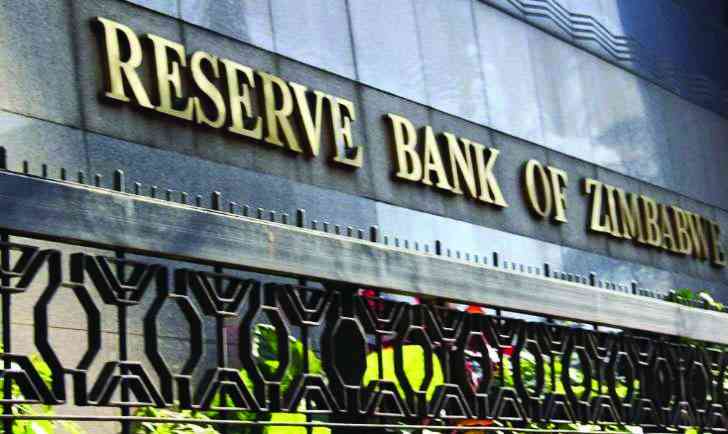
LEADING research firm EFE Securities says Zimbabwe’s financial sector is under pressure from economic challenges that are making it difficult for financial institutions to fully execute their duties.
In its latest research titled: 2023 stock market review and 2024 outlook, EFE said due to economic headwinds, banking institutions were struggling to survive.
“Liquidity crunch and lack of policy clarity affected the banking sector during the year as this had a direct effect on their operations. Bank lending to the private sector increased by 15% in 2023,” the report reads in part.
“The government and RBZ continue to encourage banks to extend more loans to productive sectors like agriculture and manufacturing to support economic growth. However, high interest rates and risks associated with lending still pose a significant constraint to credit growth.”
It said the high levels of informalisation have seen the number of microfinanciers in the economy rise to 288 as at September 30 2023, as they take advantage of channels not being served by traditional financial institutions.
The year 2023 recorded various mergers in the financial sector with CBZ Holding leading as it acquired more stake in First Mutual Limited and First Mutual Property while FBC Holding is still in the process of acquiring Standard Chartered Bank at a price of US$22 million.
According to the report, banking sector deposits continued to surge month-on-month, having increased by 479,09% in the ten months to October 2023.
Similar to the prior years, the distribution of deposits remained skewed towards demand deposits leaving only a small part of the deposits available to savings and time deposits.
- Kuvimba snaps up 50% GDI shares
- Teachers, other civil servants face off
- Data deficiency delays compensation process
- Veld fire management strategies for 2022
Keep Reading
“This is due to inflation outpacing interest rates thus providing a disincentive to economic players for savings as they will be generating negative returns in real terms,” it said.
“However, the low numbers of savings are a cause for concern as there will be less resources to fuel the economic activities through on-lending. Individuals and service providers held most of the funds in the banks as they contributed a combined 50% of the total deposits.”
Broad money registered an increase of 522% to ZW$16,7 trillion in the ten months to October 2023. The growth in money supply is partly reflected by exchange rate depreciation.
EFE Securities said growth in the broad money is attributable to local money creation by banks and fiscal authorities through issuance of Treasury Bills and increase in foreign currency deposits.
Foreign capital inflows from investments, aid, and loans also contributed to the increases in money supply. As at the end of October 2023 money stock was largely composed of foreign currency deposits, local currency deposits (20,75%) and currency in circulation (0,07%).
Another research firm, Fincent Securities, said growth in reserve money and broad money peaked in June and slowed following tightening of monetary policy by the authorities.
Triggered by runaway inflation and rapid local currency depreciation in 2Q23, the authorities adopted a tight monetary stance.
Consequently, the bank policy rate was maintained at 150% since June then reviewed downwards to 130% in October.
A key policy change was Statutory Instrument 218 of 2023, which extended the use of the multi-currency regime to 2030 to allow policy space for smooth de-dollarisation.
In 2023, the authorities changed the calculation of blended inflation first to an arithmetic based method then to a geometric aggregation method.
Consequently, annual inflation closed 2023 at 26,52%, which is significantly lower than the restated figure of 56% as at December 2022, but still higher than the government’s target of 20%.
“Inflation is anticipated to continue on the rise given the ongoing El Nino induced drought, continued power shortages and exchange rate volatility,” Fincent said.
“Further, the disparity between the interbank exchange rate and the parallel market rate may continue driving prices upwards as businesses continue to peg their prices using parallel market rates.”
In June 2023, the RBZ began selling foreign currency to banks in a wholesale auction at the market-determined exchange rate for on-selling to banks’ customers. Interbank trading limits were consequently reviewed upwards from US$100 000 to US$500 000, consistent with auction limits.
The Fincent report shows that since inception of the wholesale auction, total cumulative allotments amounted to US$462,64 million, representing 95,37% of the total accepted bid amounts.
“While the early days of the wholesale auction coincided with a stabilisation of the auction rate, this effect seems to have been outpaced by other macroeconomic forces in the latter part of the year, such as increased Zimbabwe dollar liquidity in the market,” it said.
“Indications from the central bank are that the wholesale auction system will be maintained into 2024. However, as the weighted average auction rate significantly trailed behind the parallel market rate for most of 2023, it is likely that the auction rate will begin to depreciate rapidly.”











